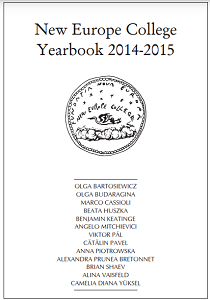THE MEANINGS OF MADNESS: THROUGH FOUCAULT TO HUSSERL
THE MEANINGS OF MADNESS: THROUGH FOUCAULT TO HUSSERL
Author(s): Alina VaisfeldSubject(s): Philosophy, Language and Literature Studies, Semantics, Phenomenology
Published by: NEW EUROPE COLLEGE - Institute for Advanced Studies
Keywords: Michel Foucault; Edmund Husserl; a phenomenological approach to madness; madness and meaning; meaning as constituted and meaning as form; meaning rupture and meaning distortion;
Summary/Abstract: This paper has three objectives: first, to propose that it is philosophically propitious to understand madness as a problem of the order of meaning. Second, to illustrate the intrinsic link between madness and meaning in Michel Foucault’s History of Madness, in which he suggests that the changing nature of madness renders impossible any talk of the meaning of madness. Third, to foreground the shortcomings of Foucault’s account and to provide an alternative approach to the meaning of madness, drawing on a handful of key concepts from Edmund Husserl’s work and centering on a notion of madness as meaning distortion.
Journal: New Europe College Yearbook
- Issue Year: 2015
- Issue No: 15
- Page Range: 373-400
- Page Count: 28
- Language: English

